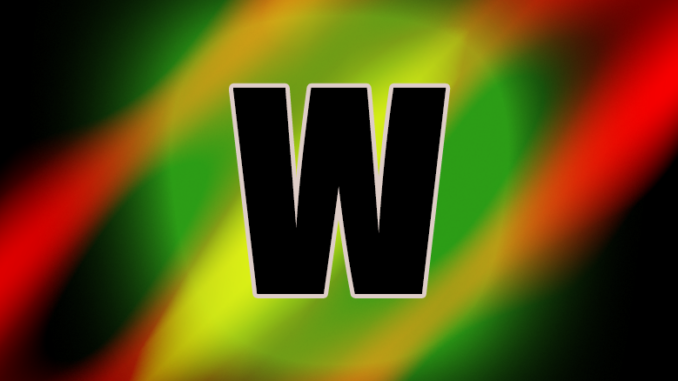
I remember where I first heard that W was a vowel. It was a question on a game show during the 1970s, challenging the contestant to name the other letters, besides A,E,I,O, and U, that could sometimes be used as vowels.
My ears, were they capable of it, would have perked. “letterS?” I was familiar with “Y”, of course, but I’d never been told of any other. When the contestant answered “W” correctly, I had to know what words used W for a vowel.
In those days prior to the internet, it took weeks of research, mostly consulting trivia books at the local library, before I found an answer: “cwm”. Meaning valley. Also spelled “coomb”, but that way lacks the magic of the W vowel, so it was rendered ordinary by comparison.
In these days of the internet, it takes a few seconds, and up pops a web site. From Dictionary.com:
“Cwm” (a steep-walled semicircular basin in a mountain, sometimes containing a lake; a cirque) and “crwth” (an ancient Celtic musical instrument), both from the Welsh, use w as a vowel – standing for the same sound that oo stands for in boom and booth. “Crwth” is also spelled “crowd.”
However, in words like “low” and “bow,” one can make a good case that the letter w represents a vowel. Both of these words end with one or another of the diphthongs of modern English. In each case, the second part of the diphthong is represented by w.
Nevertheless, I had that piece of knowledge secreted away. In the early 1990s, when I was in the Navy, I used that information to score free sodas. The setup went like this:
Me: “It’s amazing how poor the educational system has gotten these days. Most people can’t even answer simple questions, even with plenty of time to do it. You could tell them the questions ahead of time, it wouldn’t matter.”
The Mark: Something in agreement, or perhaps noncommital.
Me: “Seriously. Something like asking a simple math problem, like 2 + 3; and, oh, name a State whose first letter is a vowel. Oh, that’s good… the third, name all the vowels. I bet most people couldn’t do that if you gave them a full minute to do it.”
The Mark: Voicing either doubt or agreement again.
Me: “Tell you what. I’ll bet you a soda that you can’t do it.”
Then they’d rattle off the first two answers, A, E, I, O, U and sometimes Y, and I’d spend the rest of that minute fishing around for coins for the soda… only to reach for the giant international dictionary after sixty seconds had passed (cwm, being Welsh in origin, isn’t in most smaller dictionaries.)
You’d think that having a giant international dictionary at hand would tip some people off that a scam might be brewing, but… no. And lest anyone be horrified by my deception, let me assure you that most of the nukes tried to con each other out of soda money. You get bored on a long sea voyage. But if you’re clever or have a head for trivia, at least you’re regularly refreshed.
Question of the night: What was your favorite (non-cruel, preferably) trick to play on someone?
